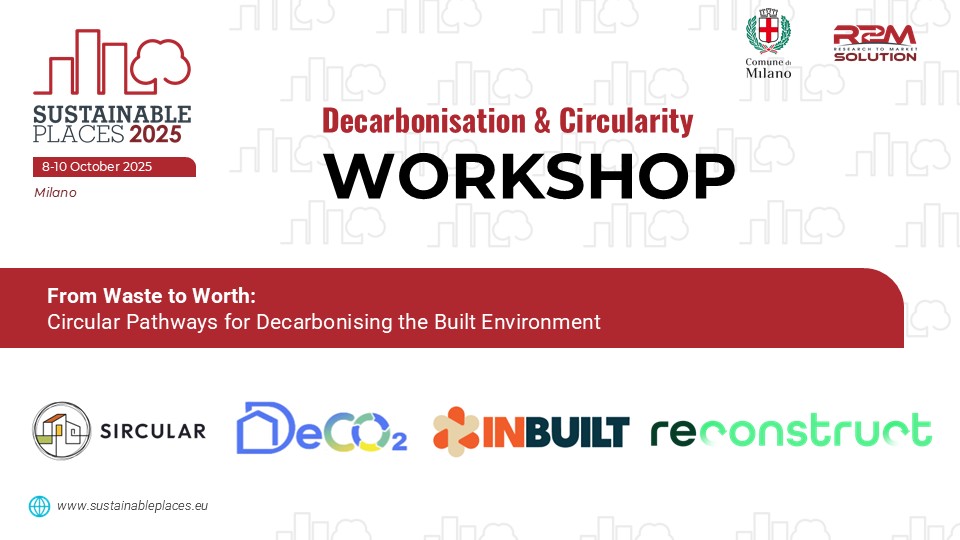From waste to worth: Circular pathways for decarbonising the built environment

The buildings and construction sector is responsible for 39% of global energy- and process-related CO₂ emissions, making low-impact construction materials and techniques crucial for reducing the carbon footprint of existing buildings. Recycling and deconstructing materials, including construction and demolition waste (CDW), play a key role in this transition. Many CDW materials can be recycled and reused, reducing both resource consumption and landfill, while contributing to a more circular built environment.
This workshop showcased how European projects addressed these challenges from different angles.
SIRCULAR and DeCO₂ developed methodologies for sustainable deconstruction and reuse, introducing dynamic pathways for decarbonisation by combining technological, social, and policy innovations through real-world pilots.
INBUILT advanced urban mining and circular construction by integrating digitalisation with reused and bio-based materials, demonstrating ten innovative solutions.
RECONSTRUCT closed material loops through recyclable concrete and cradle-to-cradle design, while driving citizen and stakeholder engagement. The project co-designed business models, policy roadmaps, and strategies to advance social acceptance and enable replication across Europe.
Together, the contributing projects presented an innovative approach to enabling integrated building decarbonisation. The session aimed to identify key strategies for accelerating Europe’s just and circular transformation by connecting digital innovation, urban mining strategies, and citizen engagement.
Three breakout areas gave participants the opportunity to exchange ideas and collaborate across projects and stakeholder groups. A closing reflection then brought participants back together to shape a shared agenda for cities and communities to move “from waste to worth” in their pursuit of carbon neutrality, circularity, and long-term resilience.
